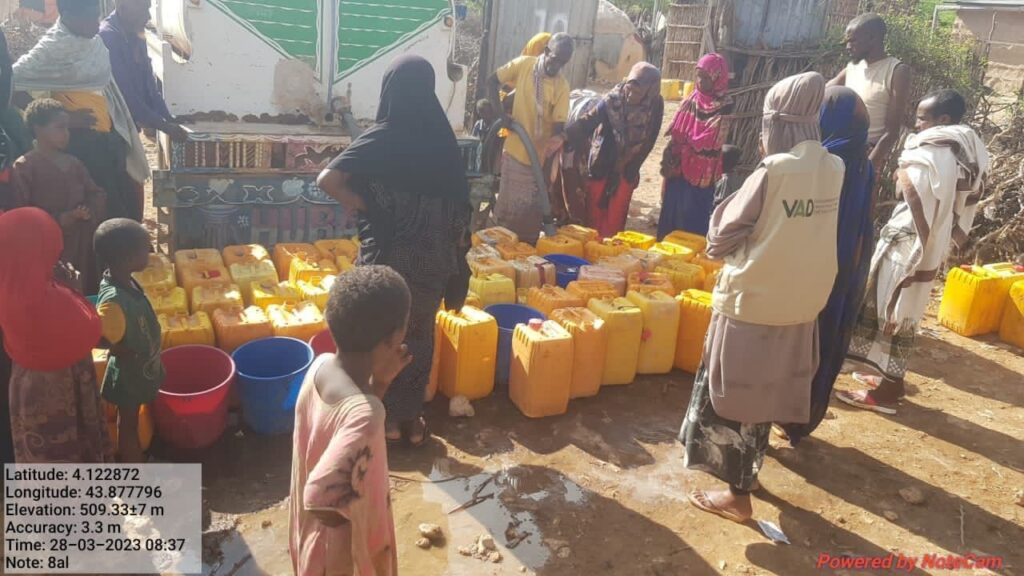SOMALIA: Caritas Somalia Completes Its Humanitarian Intervention Plans

Distribution of water
Sr. Jecinter Antoinette Okoth, FSSA
Following the prolonged drought that affected Somalia from late 2020, Catholic agencies have been hands-on offering humanitarian assistance, an activity which ended Thursday, April 20, after the country began experiencing floods which commenced in the month of March.
In a report shared with AMECEA Online by the Executive Director of Caritas Somalia Ms. Sara Ben Rached, Caritas Somalia in collaboration with Trocaire, a Catholic Church Charity agency in Ireland striving to overcome the challenges of poverty and injustice in the developing world, “launched an emergency appeal to all member organisations of Caritas Internationalis to intervene in the great drought in Somalia from the end of 2020.”
Ms. Rached indicated that on 20 April 2023, Caritas Somalia in collaboration with Volunteer Agricultural Development (VAD) completed its planned interventions including “Distributing drinking water for three months and building temporary latrines to help reduce the risk of spreading epidemics, such as cholera, which usually proliferate in contexts where sanitary conditions are precarious.”
According to the Executive Director of Caritas Somalia, the first intervention reached 3,000 families, who were forced to flee from their homes due drought, “which not only affected the population directly, but also devastated crops and decimated livestock, which were the main sources of livelihood.”
Additionally, Caritas Somalia distributed “dignity kits to protect the most defenceless and vulnerable that included a solar torch and whistles, to reduce the risk of possible attacks,” Ms. Rached said and narrated further that, at the beginning of this month of April, Caritas Somalia, in collaboration with the same local organisation, began its drinking water distribution operations which eventually reached the entire local population.
“Climate change, however, is contributing to extreme environmental conditions in the Hiirshabelle area and therefore, after the drought, the emergency to be faced in these last days is that of flooding,” Ms. Rached disclosed and concluded that, “since 10 April, the rains in Somalia and in the Ethiopian plateau have increased the water level of the Shabelle river, exceeding the threshold of high risk of flooding in the town of Belet Weyne.”


